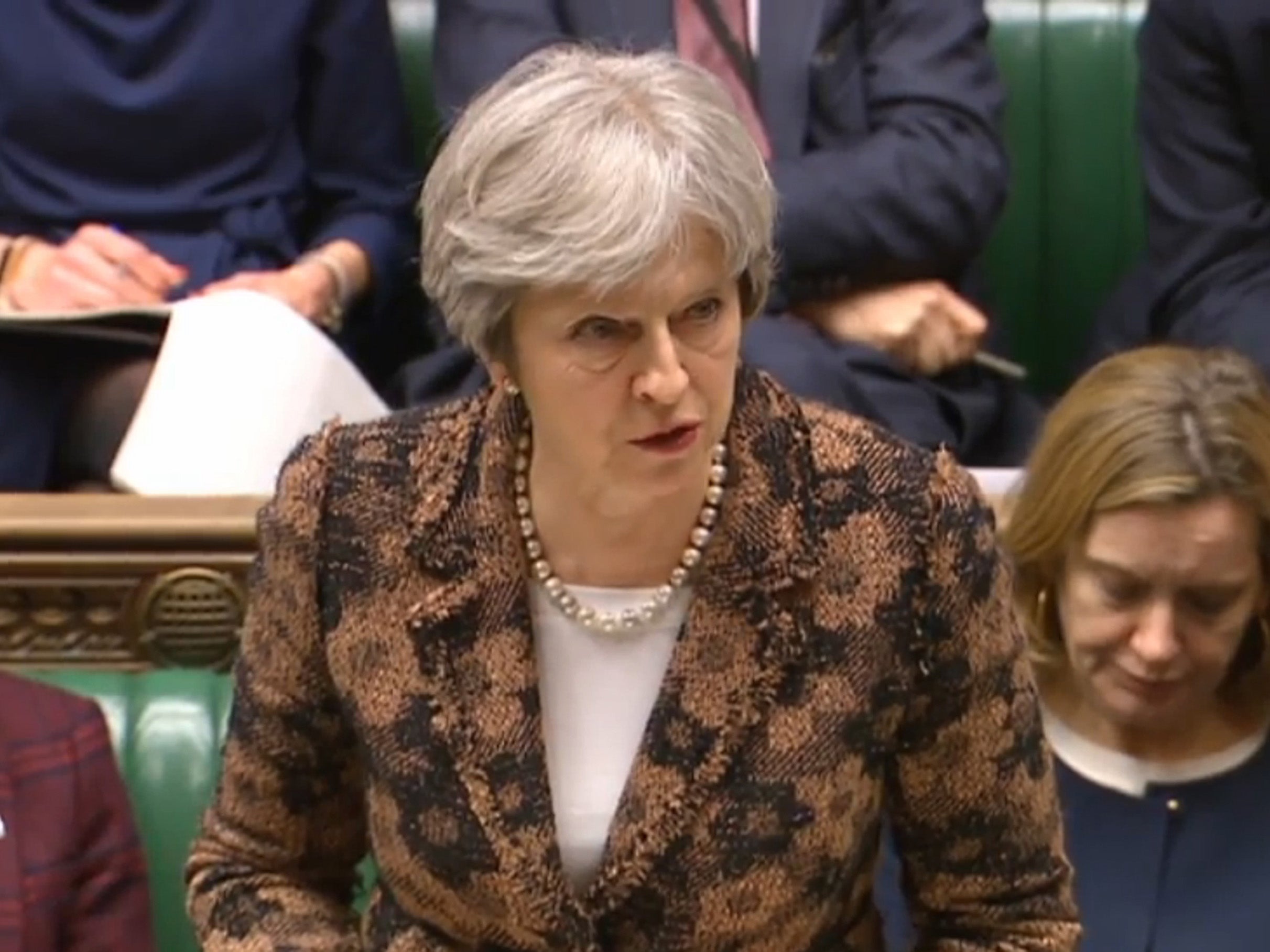Theresa May has pointed the finger, now she must decide what action to take
While the Prime Minister will feel she has done a good job so far at presenting a strong and unifying voice in the face of probable state-sponsored violence, she will be acutely conscious that President Putin is less than a week away from a presidential election

Having spent much of the last six months mired in a Brexit fug, the Prime Minister has an unexpected opportunity to reassert her leadership credentials following the chemical poisoning of Sergei Skripal and his daughter Yulia.
Speaking in the House of Commons, Theresa May confirmed the Government’s belief that Russia was “highly likely” to have been responsible for the use of a nerve agent on the streets of Salisbury. The alternative scenario, she said, was that the Russian state had lost control of dangerous, military-grade chemicals. Either way, her tone was bullish to say the least.
On the face of it, the Prime Minister’s severe stance is quite right. The attempted assassination of Mr Skripal is not only an unacceptable and reprehensible assault in its own right, it is – as Ms May noted – a matter that impacts on the wider national interest. If indeed Sergei and Yulia Skripal were the subject of an attack by Russian agents, then it is inevitable that the UK must respond robustly and effectively to an infringement of its sovereignty.
The Prime Minister’s words, then, are likely to strike a chord. By contrast, Jeremy Corbyn’s partisan questioning of donations to the Conservative party by wealthy individuals connected to Russia, while not inherently wrong, certainly felt ill-timed.
That said, the issue of money is important in terms of what Britain can realistically do in response to this extraordinary episode. Even before the violence in Salisbury, the Government had been coming under pressure to introduce a UK version of America’s Magnitsky Act, which enables the assets of foreign officials involved in corruption and human rights abuses to be frozen, and visas banned.
It has been suggested that the Government already has the powers to exclude individuals from this country; yet there seems little logical reason to oppose the introduction of specific legislation. Not only would the passage of such a statute send a firm message to Russia, it would helpfully present a united front with the US.
More broadly, there will – as there have been for many years – calls to do more to prevent Britain (and in particular London’s luxury property market) being a haven for dirty money, Russian or otherwise, that has been neatly laundered along the way. That is indeed something which the Government must address, putting aside the present case.
Unsurprisingly the question of England’s representation at this summer’s football World Cup was raised once again during the Commons debate; and was essentially swerved. Unless relations drastically improve between now and June it seems inevitable that ministers and dignitaries will decline to travel, in a show of protest. But there will be little appetite for a full-blown boycott by the English team.
Another option would be to revoke the license of the Russia Today television channel, although that is hardly a straightforward move either.
What’s more, while the Prime Minister will feel she has done a good job so far at presenting a strong and unifying voice in the face of probable state-sponsored violence, she will be acutely conscious that President Putin is less than a week away from a presidential election.
It seems inconceivable that the strongman of Russia will make any concessions to Britain at this juncture, either in terms of admitting responsibility or even agreeing to talks. Further blunt denials are the most likely response from Moscow. That in turn will increase the pressure on ministers here to do the running, perhaps by expelling Russian diplomats in the first instance.
There is, in these circumstances, a modest danger that an already tense situation will get out of control, which would ultimately be to nobody’s benefit at all. As such, the Prime Minister must balance her righteous anger – which will be shared by many – with a demonstrable understanding that not all Russians (either in Russia or living elsewhere) can be held directly responsible for the actions of the Russian state. She mustn’t create national bogeymen.
In her statement to Parliament, the Prime Minister largely answered the demand that she keep us informed of developments in the Skripal investigation. Now she must keep her nerve; and her composure.
Join our commenting forum
Join thought-provoking conversations, follow other Independent readers and see their replies
Comments
Bookmark popover
Removed from bookmarks